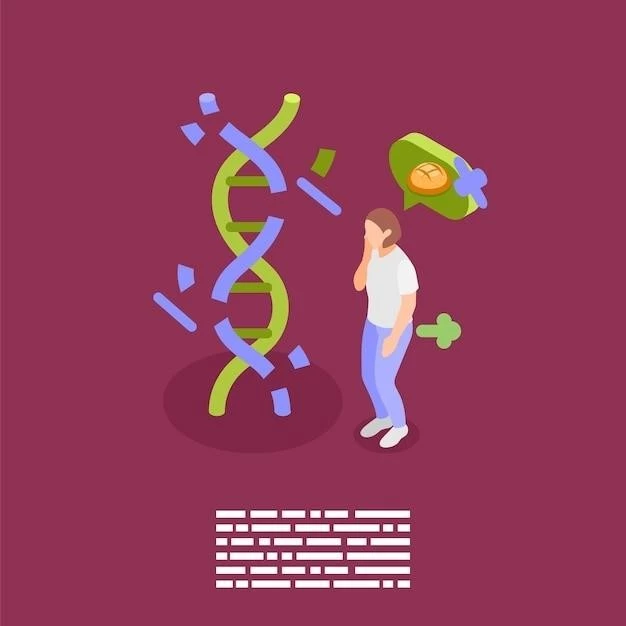Understanding Chromosome 16 Uniparental Disomy
When it comes to understanding Chromosome 16 Uniparental Disomy‚ it’s essential to grasp the genetic implications and clinical manifestations involved.
Definition and Overview
Chromosome 16 Uniparental Disomy occurs when both copies of chromosome 16 are inherited from one parent‚ instead of one from each parent. This genetic condition can lead to various health issues and developmental challenges. Understanding the implications of this genetic anomaly is crucial for individuals and families affected by it; Seek guidance from genetic counselors and healthcare professionals to navigate the complexities of Chromosome 16 Uniparental Disomy effectively.

Genetic Mechanisms of Chromosome 16 Uniparental Disomy
Understanding the genetic mechanisms behind Chromosome 16 Uniparental Disomy is key to comprehending its impact on health and development. Consult genetic specialists for detailed insights.
Types of UPD on Chromosome 16
There are two main types of Uniparental Disomy (UPD) on Chromosome 16⁚ Isodisomy and Heterodisomy. Isodisomy involves inheriting two identical copies of chromosome 16 from one parent‚ while Heterodisomy occurs when two different copies of the chromosome are inherited from the same parent. Understanding these distinctions is vital for accurate diagnosis and tailored care plans. Consult with healthcare providers and genetic specialists to navigate the implications of each type effectively.
Clinical Manifestations of Chromosome 16 Uniparental Disomy
Recognizing the clinical manifestations of Chromosome 16 Uniparental Disomy is crucial for early intervention and management of associated symptoms. Stay informed and seek medical advice promptly.
Common Symptoms and Characteristics
Individuals with Chromosome 16 Uniparental Disomy may experience a range of symptoms‚ including developmental delays‚ intellectual disabilities‚ dysmorphic features‚ and potential health issues. It is essential to monitor growth‚ development‚ and overall well-being regularly. Seek multidisciplinary care from medical professionals‚ therapists‚ and support networks to address specific symptoms and enhance quality of life for individuals with this genetic condition.
Diagnosis and Testing for Chromosome 16 Uniparental Disomy
Early and accurate diagnosis of Chromosome 16 Uniparental Disomy involves genetic testing and analysis. Consult with genetic counselors and healthcare providers for appropriate testing and comprehensive evaluation.
Methods for Diagnosis
Diagnosing Chromosome 16 Uniparental Disomy typically involves chromosomal microarray analysis‚ SNP array‚ and methylation studies. These tests help identify any abnormalities in chromosome 16 inheritance. It is essential to work closely with medical professionals to interpret results accurately and develop a personalized care plan based on the diagnosis. Stay informed about the diagnostic process to make informed decisions regarding treatment and management.
Treatment Strategies for Chromosome 16 Uniparental Disomy
Developing individualized treatment plans focusing on symptom management and supportive care is essential for individuals with Chromosome 16 Uniparental Disomy. Collaborate with healthcare providers for comprehensive and coordinated care.
Current Approaches
Current approaches for treating Chromosome 16 Uniparental Disomy focus on addressing individual symptoms and providing supportive therapies such as physical and occupational therapy‚ speech therapy‚ behavioral interventions‚ and educational support. It is crucial to have a multidisciplinary team involved in the care to tailor interventions according to the unique needs of each individual. Stay informed about the latest advancements in treatment strategies and collaborate with specialists to optimize the care and enhance the quality of life for individuals with this genetic condition.
Prognosis and Long-Term Outlook of Chromosome 16 Uniparental Disomy
Understanding the long-term outlook of Chromosome 16 Uniparental Disomy can help in planning for ongoing support and therapies. Stay informed and work closely with healthcare providers for personalized care.
Life Expectancy and Quality of Life
Individuals with Chromosome 16 Uniparental Disomy may have varied life expectancies based on associated health complications. Focus on enhancing quality of life through early interventions‚ multidisciplinary care‚ and support services. Engage with support networks and advocate for comprehensive care strategies to ensure an improved quality of life for affected individuals.
Research Advances in Chromosome 16 Uniparental Disomy
Keeping up with the latest research on Chromosome 16 Uniparental Disomy can provide valuable insights into new treatment options and potential breakthroughs. Stay informed and discuss emerging findings with healthcare experts.
Recent Discoveries and Studies
Ongoing research on Chromosome 16 Uniparental Disomy has unveiled promising findings‚ elucidating the genetic mechanisms and potential therapeutic targets associated with this condition. Stay updated on the latest discoveries to understand how they may impact future treatment approaches. Consider participating in clinical trials and research studies to contribute to advancing knowledge and improving outcomes for individuals affected by Chromosome 16 Uniparental Disomy.
Support and Resources for Individuals with Chromosome 16 Uniparental Disomy
Accessing support networks and specialized resources can provide valuable guidance and assistance for individuals and families navigating the challenges of Chromosome 16 Uniparental Disomy. Connect with advocacy groups and healthcare professionals to explore available support services tailored to your specific needs.
Available Assistance and Networks
Various assistance programs and support networks exist to aid individuals with Chromosome 16 Uniparental Disomy. These resources can offer emotional support‚ educational information‚ and practical help. Engage with genetic counselors‚ patient advocacy groups‚ and online communities to access a network of support and valuable resources tailored to assist you in managing this genetic condition effectively. Remember‚ you are not alone in this journey.
